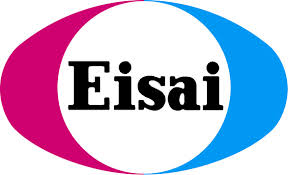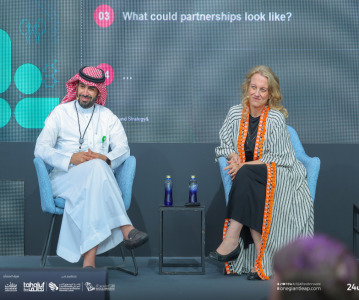Rare cancer drug which significantly delays progression of advanced thyroid cancer is left off relaunched Cancer Drugs Fund

People with radioiodine refractory differentiated thyroid cancer are overlooked as Lenvima is not scheduled for evaluation by NICE or the new Cancer Drugs Fund.
People with an advanced form of thyroid cancer have to wait up to 2 to 3 years before being able to access Lenvima (lenvatinib) in England, due to failures in the new Cancer Drugs Fund (CDF) procedure launched on 29 July. Lenvatinib can significantly slow the progression of disease; in its pivotal trial, the treatment provided a significant median progression free survival benefit of 18.3 months versus 3.6 months for placebo in radioiodine refractory differentiated thyroid cancer. Further, nearly two-thirds of patients responded (ORR measure) to the treatment with a significant objective response rate (ORR) of 64.8% versus placebo 1.5%. The treatment also demonstrated a rapid response, with a median time to first objective response of only 2 months. Adverse events were seen in nearly all lenvatinib patients (97.3% on lenvatinib versus 59.5% on placebo) and the most common were hypertension, diarrhoea, fatigue, decreased appetite, decreased weight and nausea.
Lenvatinib is indicated for the treatment of adults with progressive locally advanced or metastatic, differentiated (papillary, follicular, Hürthle cell) thyroid carcinoma (DTC), refractory to radioactive iodine (RAI-R) and was granted an accelerated assessment and approved by the European Commission in May 2015. It is available in many countries in Europe already, including Germany where it has been available from May 2015.
Lenvatinib is not listed on the relaunched CDF and NICE has indicated it will not be able to issue final guidance on the treatment until around June 2018. Lenvatinib has been in limbo ever since 2015, when it was refused entry to the CDF as it was closed to new medicines and was not scheduled for assessment by NICE due to its low budget impact. To compound this situation, Eisai is aware of at least 20 individual funding requests made by clinicians in England for the use of lenvatinib in eligible patients, and no patient has yet received the treatment.
Eisai calls for a flexible solution in the form of urgent transitional arrangements that would ensure patients can access lenvatinib through the CDF. Eisai has met with NHS England and NICE but despite extensive dialogue, to date no agreement has been made.
"As a clinician I am now in the difficult position of having to explain to my patients why I cannot prescribe a drug that is available in other European countries. This is obviously very disappointing given the significant progression free survival benefit demonstrated by lenvatinib for patients with radioiodine refractory DTC and my colleagues and I will not be able to do so in the immediate foreseeable future," comments Dr Nick Reed, Consultant Clinical Oncologist, Beatson Oncology Centre, Glasgow, UK.
"On behalf of patients with advanced thyroid cancer, we have no option but to fight this inequitable situation. For once this is not about cost as we have not been asked to be evaluated for clinical or cost effectiveness but we would welcome the opportunity to do so but also the new CDF is underwritten by the pharmaceutical industry where we take 100% of the financial risk associated with the Fund. This situation would indicate that England is turning the clock back and fast becoming the sick child of Europe in terms of access to innovative cancer drugs. Eisai will therefore fight aggressively for the rights of patients, which may include taking legal action.
"Lenvatinib was developed in the UK and is now manufactured in Hertfordshire in our state of the art facility. With no access to lenvatinib for people with advanced thyroid cancer in the UK for possibly 3 years, we may be forced to reconsider our future investments here. The NHS is one of the best healthcare systems in the world and so there simply must be a solution for patients," comments Gary Hendler, Chairman and CEO Eisai EMEA.
Related News
-
News Ophthalmologic drug product Eylea faces biosimilar threats after FDA approvals
Regeneron Pharmaceutical’s blockbuster ophthalmology drug Eylea is facing biosimilar competition as the US FDA approves Biocon’s Yesafili and Samsung Bioepis/Biogen’s Opuviz. -
News ONO Pharmaceutical expands oncology portfolio with acquisition of Deciphera
ONO Pharmaceutical, out of Japan, is in the process of acquiring cancer-therapy maker Deciphera Pharmaceuticals for US$2.4 billion. -
News First offers for pharma from Medicare drug price negotiations
Ten high-cost drugs from various pharma manufacturers are in pricing negotiations in a first-ever for the US Medicare program. President Biden’s administration stated they have responded to the first round of offers. -
News Eli Lilly’s Zepbound makes leaps and bounds in weight-loss drug market
In the last week, Eli Lilly has announced their partnership with Amazon.com’s pharmacy unit to deliver prescriptions of Zepbound. Zepbound has also surpassed Novo Nordisk’s Wegovy for the number of prescriptions for the week of March 8.&nbs... -
News Chasing new frontiers at LEAP – The National Biotechnology Strategy Keynote
On the third day of LEAP (4–7 March 2024, Riyadh Exhibition and Convention Centre, Malham, Saudi Arabia) the CPHI Middle East team hosted the Future Pharma Forum, to set the scene for an exciting new event for the pharma community, coming to Riya... -
News Pfizer maps out plans for developing new oncology therapeutics by 2030
Pfizer dilvulges plans to investors around growing their cancer portfolio, and the drugs they will be focusing on developing after their aquisition of Seagen in 2023. -
News Generics threat to Merck’s Bridion as Hikma seeks pre-patent expiry approval
Merck has disclosed they received notice from Hikma Pharmaceuticals for seeking a pre-patent expiry US FDA approval for Hikma’s generic version of Merck’s Bridion. -
News Bernie Sanders vs Big Pharma - the latest on drug price negotiations
In a hearing in front of the US Senate, three of the biggest pharmaceutical companies in America are challenged over exorbitant prescription drug prices, with Sanders claiming their actions are limiting the population's access to affordable healthc...
Position your company at the heart of the global Pharma industry with a CPHI Online membership
-
Your products and solutions visible to thousands of visitors within the largest Pharma marketplace
-
Generate high-quality, engaged leads for your business, all year round
-
Promote your business as the industry’s thought-leader by hosting your reports, brochures and videos within your profile
-
Your company’s profile boosted at all participating CPHI events
-
An easy-to-use platform with a detailed dashboard showing your leads and performance
.png)

.png)
.png)


.png)
.png)